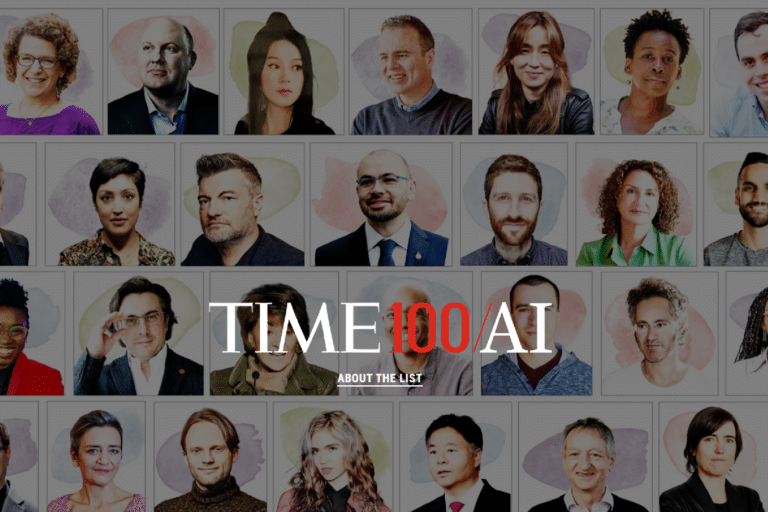Artificial intelligence (AI) has taken center stage worldwide and revolutionized various industries. In September 2023, TIME published its first TIME 100 AI, which recognizes the 100 most influential people in the field of AI. While we dominate the list, notable figures from **India** and **China** also feature prominently, highlighting the global nature of AI development and its growing influence in economies beyond the West.
USA: The epicenter of AI
It's no surprise that the US features most prominently in the list, leading the world in AI research and development. Personalities such as Sam Altman, CEO of OpenAI, and Elon Musk, founder of xAI, are at the forefront. Altman's organization is behind ChatGPT, a major leap in conversational AI. At the same time, Musk continues to push boundaries with his various ventures, including xAI, which is focused on achieving Artificial General Intelligence (AGI).
The domain's dominance is also reflected in the plethora of academics and industry leaders, such as Geoffrey Hinton, referred to as the "godfather" of deep learning, and Meredith Whittaker, president of Signal and a champion of ethical AI. The overwhelming presence of US representatives underscores the country's heavy investment in AI infrastructure and its role as the birthplace of major AI breakthroughs.
India: a rising star in the AI landscape
Although the US leads the field, India is quickly establishing itself as a significant player in the AI world. India's influence is undeniable, with 15 representatives on the TIME100 AI list. One of the standouts is Sneha Revanur, an 18-year-old activist who heads Encode Justice, an organization promoting ethical AI. Her recognition as the youngest person on the list highlights the active role that young Indians are playing in tackling the ethical challenges of AI.
Other notable Indians include Kalika Bali, a senior researcher at Microsoft Research India, and Romesh and Sunil Wadhwani, co-founders of Wadhwani AI. Their company uses AI to solve social problems in health, education, and agriculture. Wadhwani AI focuses on deploying AI solutions in underserved rural areas, demonstrating India's increasing focus on using AI for social good.
With a thriving startup ecosystem and a commitment to using AI for social benefit, India is showing that emerging economies can participate and lead technological innovation. Prominent investor Vinod Khosla, who is also on the list, has long championed the transformative potential of AI in industries such as healthcare and robotics.
China: the giant that regulates AI
China also features prominently on the TIME 100 AI list, focusing on government regulation and AI development. Zhuang Rongwen, head of China's Cyberspace Administration, is one of the key figures recognized. China's centralized approach to AI regulation has allowed the country to implement technologies such as facial recognition and social credit systems on a large scale. Although China's rapid advances have attracted criticism, particularly about data privacy and human rights, they also underline the country's ability to innovate on a large scale.
In addition to regulators, tech giants such as Baidu, Alibaba and Tencent are also leading the way in AI research and development in China. However, unlike in the US, China's influence is often determined by large companies rather than individual innovators. This difference highlights the contrasting approaches of the two superpowers: the US encourages a more individualistic, entrepreneurial approach to innovation, while China's advances are often state-backed and institution-led.
The role of emerging economies in AI
The US remains the clear leader in reshaping the future of AI, but countries such as India and China are becoming increasingly important players. India, in particular, has demonstrated leadership in AI's ethical and societal applications. At the same time, China continues to make inroads with its top-down regulatory framework and large-scale deployment of technology.
Including 15 Indian personalities in the list shows that India is not only adopting AI but actively contributing to its ethical and technological advancement. Similarly, China's regulatory influence underscores countries' paths in AI governance and development.
Ultimately, the TIME 100 AI list serves as a reminder that while the US is leading the way in innovation, the future of AI is global. Emerging markets are playing an increasingly important role in the development of AI and are embracing both the promise and challenges of this transformative technology.






